
Migration and Forced Displacement
 Maximizing economic upsides and protecting the vulnerable
Maximizing economic upsides and protecting the vulnerable
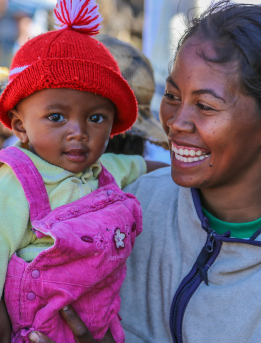
There are about 184 million people worldwide, including 37 million refugees, who live outside their country of nationality. About 43 percent of them live in low- and middle-income countries. With the right policies in place, cross-border migration can be a powerful force for development and prosperity.
To help countries meet this challenge, this topic page brings together important policy messages derived from World Bank research, including the World Development Report 2023: Migrants, Refugees, and Societies. It also provides additional valuable resources for researchers and policy makers seeking to better understand and address the complexities of migration.
![]() NEW! Listen to key insights in a quick, fun, conversational, AI-generated audio journey.
NEW! Listen to key insights in a quick, fun, conversational, AI-generated audio journey.
 Key Policy Messages
Key Policy Messages
These are major themes and messages emerging from the latest World Bank research on migration and forced displacement. Click on each card to learn more and access related publications.
Origin countries should make labor migration a part of their development strategy
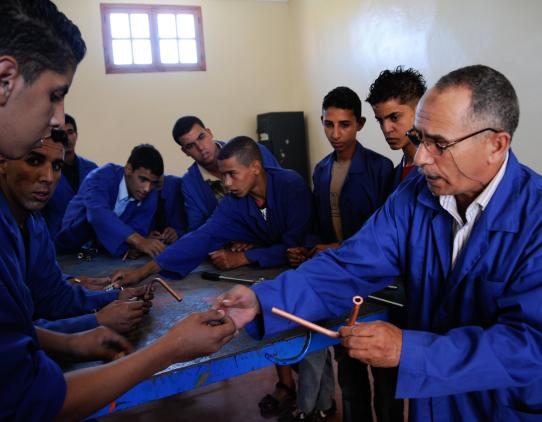
Origin countries should make labor migration a part of their development strategy
- Facilitate remittances, knowledge transfers, and investments from the diaspora
- Mitigate the downsides of “brain drain”
- Expand training for skills in high demand globally (e.g., healthcare)
Yet simply maximizing remittances should not be a policy goal.
Destination countries should attract migrants with skills that are in demand
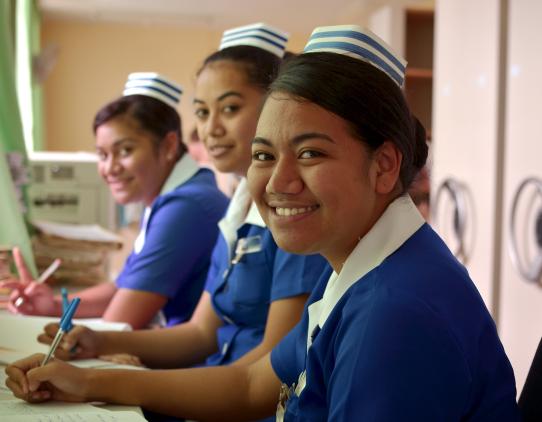
Destination countries should attract migrants with skills that are in demand
- Facilitate the economic and social inclusion of these migrants
- Support nationals who are negatively affected
Underrepresented voices must be heard, including:
- Developing countries and local authorities in destination countries
- The private sector, labor unions, and other stakeholders who can assess medium-term labor needs
- Migrants and refugees themselves
Donors and host countries should invest in refugees' economic independence
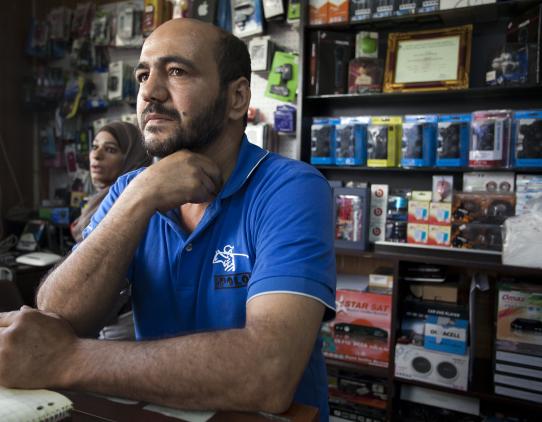
Donors and host countries should invest in refugees' economic independence
Investments in refugee earning capacity can enable refugees to become financially independent, and reduce the amount of humanitarian aid required.
Including refugees in national education and health systems, with adequate international support, is part of a sustainable response to refugee arrivals.
Countries should work to reduce distressed migration, while respecting people’s dignity
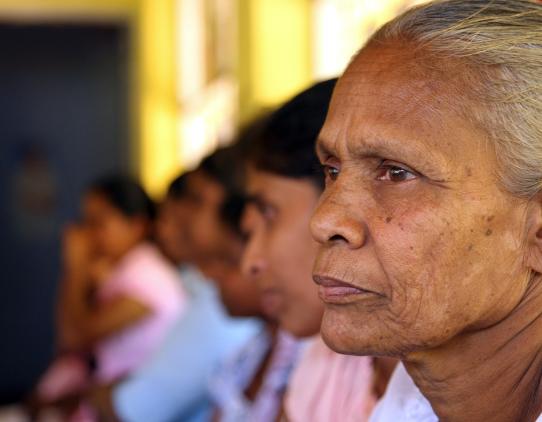
Countries should work to reduce distressed migration, while respecting people’s dignity
When migrants are neither refugees nor a strong match for the destination country’s labor market:
- Human dignity must be the guiding policy principle
- International cooperation is essential
Governments should consider the impact of migration policies on children
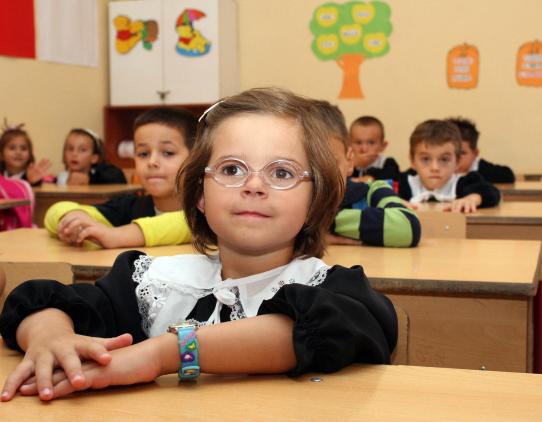
Governments should consider the impact of migration policies on children
Migration’s impact on children’s outcomes is complex and context-dependent:
- Policies that promote integration are highly beneficial
- Enforcement-oriented policies tend to hinder children’s development
Policies that improve service access and integration typically lead to positive outcomes for migrant children, such as including refugees in national education and health systems with international support.
Migration policies also impact critical family decisions.
International cooperation is critical to managing migration and forced displacement
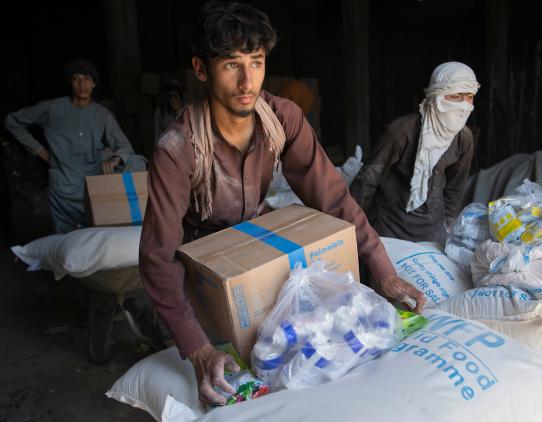
International cooperation is critical to managing migration and forced displacement
Refugee-hosting countries and destination countries for migrants need and deserve international support:
- Bilateral cooperation can help finance training for migrants to develop in-demand skills
- New financing instruments should be developed to help countries care for non-citizens sustainably
- International support is needed for climate adaptation
 Multimedia
Multimedia
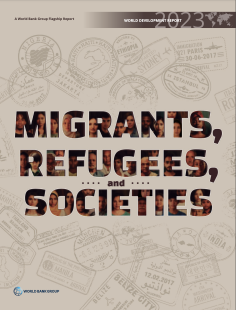
Publications
World Development Report 2023: Migrants, Refugees, and Societies
This flagship report addresses the question of how to optimize the development impacts of cross-border movements on countries, and on migrants and refugees themselves. The framework it offers, drawn from labor economics and international law, rests on a “match and motive” matrix that focuses on two factors: how closely migrants’ skills and attributes match the needs of destination countries and what motives underlie their movements.
Read more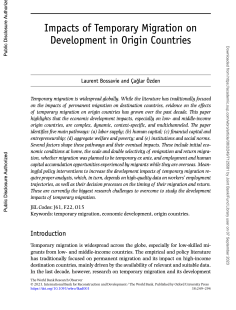
Journal Articles
Impact of Temporary Migration on Development in Origin Countries
This paper highlights that the economic development impacts of temporary migration, especially on low- and middle-income origin countries, are complex, dynamic, context-specific, and multi-channeled. The paper identifies five main areas of impact: (a) labor supply; (b) human capital; (c) financial capital and entrepreneurship; (d) aggregate welfare and poverty; and (e) institutions and social norms.
Read more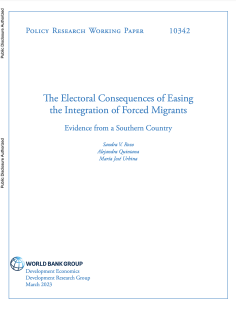
Policy Research Working Papers
The Electoral Consequences of Easing the Integration of Forced Migrants: Evidence from a Southern Country
How does easing the economic integration of forced migrants affect native voting behaviors in the Global South? This paper assesses how the regularization of half a million Venezuelan forced migrants affected the electoral choices of Colombian natives by comparing election results in municipalities with higher and lower take-up rates for a program that supports forced migrants.
Read more
Events
World Development Report 2023 Learning Events
The World Development Report 2023 Learning Events provided a platform for leading researchers, academics, policymakers and other practitioners working in the fields of migration or forced displacement to present on a development topic of relevance related to their work. Recordings of some of the events are available here.
Read more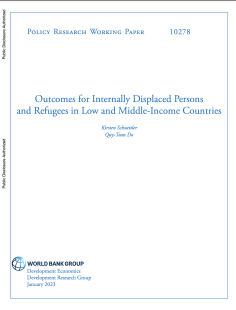
Policy Research Working Papers
Outcomes for Internally Displaced Persons and Refugees in Low and Middle-Income Countries
The paper takes stock of the growing quantitative literature on outcomes for the forcibly displaced in low- and middle-income countries. The main takeaway is that forced displacement research has now become a full-fledged sub-field of the migration literature: it addresses the same questions of economic and social integration, returns, and the impact of conditions and policies in the destination country.
Read more